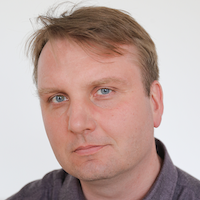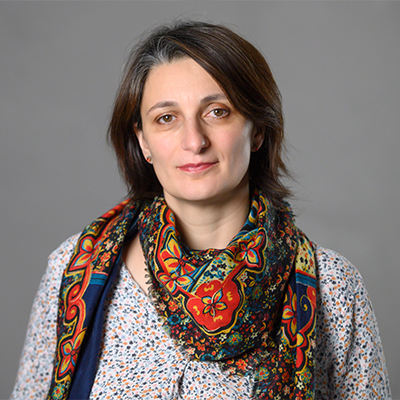Hi from Paris,
Should we judge politicians by their family ties? In France, this idea has long been taboo. Former President François Mitterrand was able to maintain his mistress and raise a daughter with her out of sight, even though all the political journalists knew about the relationship.
Yet sometimes, family affairs are a matter of public interest. When the husband of the Estonian Prime Minister keeps business links with Russia, it is a betrayal of her political principles. When conservative politicians, obsessed with the idea of the ‘traditional family’, benefit their own relatives, such as Georgia Meloni in Italy, it’s an abuse of power. Journalists have every reason to dig further into these issues.
When ‘family’ goes beyond kinship to refer to a vague group of tycoons, judges, and other powerful men close to the government, it is even more necessary to investigate. This definition comes dangerously close to a Mafia.
Nelly Didelot, this week’s Editor-in-Chief
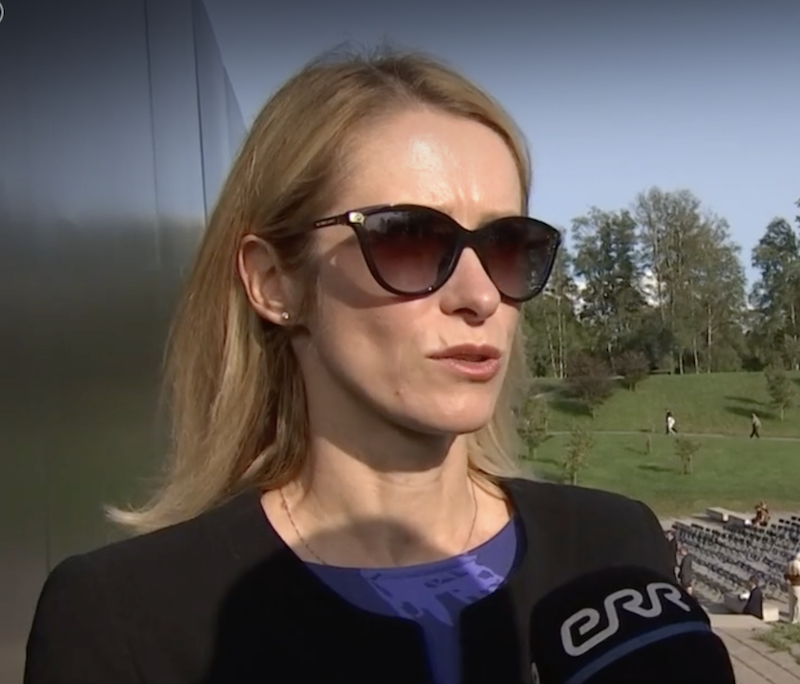
“My moral values haven’t changed,” the Estonian prime minister Kaja Kallas insisted. In just one week, Kallas’s untouchable grip on the country’s top job and her credibility collapsed.
What happened? Media revealed that her husband belonged to a group of business associates who continued to operate in Russia, despite its invasion of Ukraine. After first claiming their trucking company only helped ‘one Estonian customer close down their Russian business’ and were doing ‘a morally good thing’, new details started to emerge.
This customer was an aerosol canister factory that belonged to one of the associates. Instead of returning factory equipment from Russia to Estonia, the trucking firm continued carrying raw material to Russia, making at least 1.5 million euros in revenue on the deals.
If Kallas had not built herself up as a moral beacon regarding the Ukrainian war in Estonia and on the world stage, one might say this is business as usual. A few months ago Kallas urged local businesspeople to ‘find their moral compass’ and restrict ties with Russia. This wasn’t a one-off statement, but has characterised her policy since 24 February 2022. She has been one of the most staunch advocates for sanctions against Russia.
She wasn’t involved in the business herself and, strictly following the law, it wasn’t illegal. Still, many believe her actions and statements constitute moral corruption.
Firstly, she tried to downplay the issue. Secondly, she insisted the scandal was revenge by middle-aged white men. Thirdly, she complained she was being bullied by reporters. Finally, she announced that her husband’s continued business links to Russia are a non-issue in the West, but are in Estonia, because the people have high demands of their leader’s ‘moral values’.
As we went to press, she was still in power, though 70% of the public want her to resign.

Three million Polish Zloty (about €650,000) is the value of land bought by Iwona Morawiecka, the wife of the Polish Prime Minister, journalists have revealed. The total value of PM Mateusz Morawiecki’s wealth is unknown.
Before turning into politics, the prime minister was the CEO of a large foreign bank in Poland. He has savings and bonds worth almost five million zlotys (over one million euros), plus several houses and apartments. Polish law does not oblige family members of politicians to submit a declaration of their assets.
The Prime Minister’s critics say that if the wealth of the Prime Minister and his family were made public, it might not go down well with the voters for his Law and Justice party, ahead of next month’s parliamentary election.

Italian prime minister Giorgia Meloni wants to “defend” the family. She kept repeating this catchphrase last week, when she spoke at Hungarian PM Viktor Orbán’s Demographic summit in Budapest. And I can assume that she really wants to “defend the family”. At least, her own.
Since the Brothers of Italy party’s leader took charge of the government, Meloni’s family-first policy has begun to form: she appointed her own brother-in-law, Francesco Lollobrigida, as the Agriculture Minister. He first met the Meloni family at the beginning of 2000 because of their common involvement in far-right politics. Lollobrigida is still a supporter of the “Replacement Theory” – a conspiracy theory about migration – and he says it publicly.
Another striking decision came in August, when Meloni named her sister Arianna as the head of the Brothers of Italy party secretariat, with the role of managing the membership department. Arianna Meloni will almost certainly be a candidate for the European Parliamentary elections, and this is thanks to her surname: voters are regarded as inclined to vote for “Meloni” if that name is on the electoral list.
Giorgia Meloni is used to blaming journalists and satirists: she accuses them of criticising her family. But the weird thing is that, in her case, her family also represents… Italian politics. Giorgia Meloni trusts in the family, and she uses her family as a trust. She refers to fiduciary relationships with a lack of public accountability. And she wants to keep a monopolistic control of the political processes. It now seems that there is no distinction between Meloni’s government, her party and her family. This triangle reveals an abnormal concentration of power, and it shows how Meloni’s grip on power works: it is designed to prevent dissent. The irony is that Giorgia Meloni loves to talk about turning Italy into a “meritocracy”…
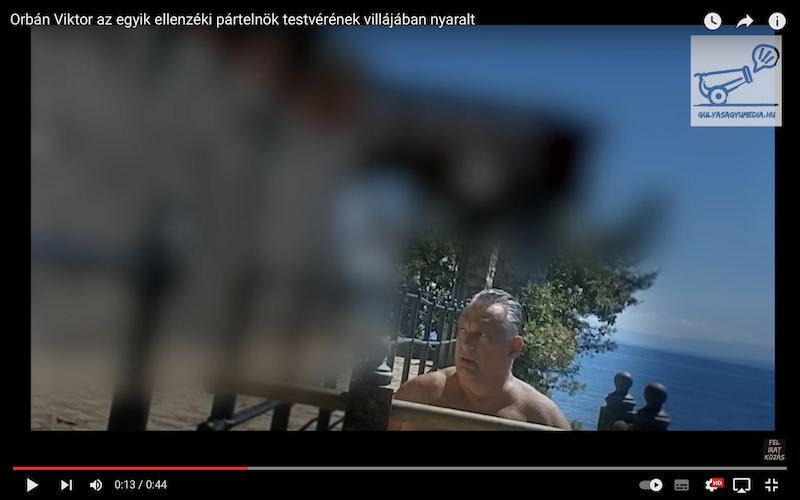
Hungarian prime minister Viktor Orbán made an unexpected topless appearance in the local media: a civilian paparazzo in the seaside resort of Opatija, Croatia, caught him stepping out of the sea and into a luxury villa on the beach.
The photo took the Hungarian public by surprise, but there were also more revealing details about Oban’s holiday. The footage was obtained by opposition journalist Balázs Gulyás, who revealed that the luxury villa belonged to the Ungár family, whose companies have won lucrative state contracts.
The prime minister, whose father, children and son-in-law are known for their various businesses, was joined by members of his family. Also, he did not pay for accommodation and, according to official information, he was not even on holiday.
It is not only the Prime Minister who is of interest in this case. One member of the hosting family, Péter Ungár, is a well-known figure in the Hungarian opposition to Orbán. The circle of influence appears to be closing.
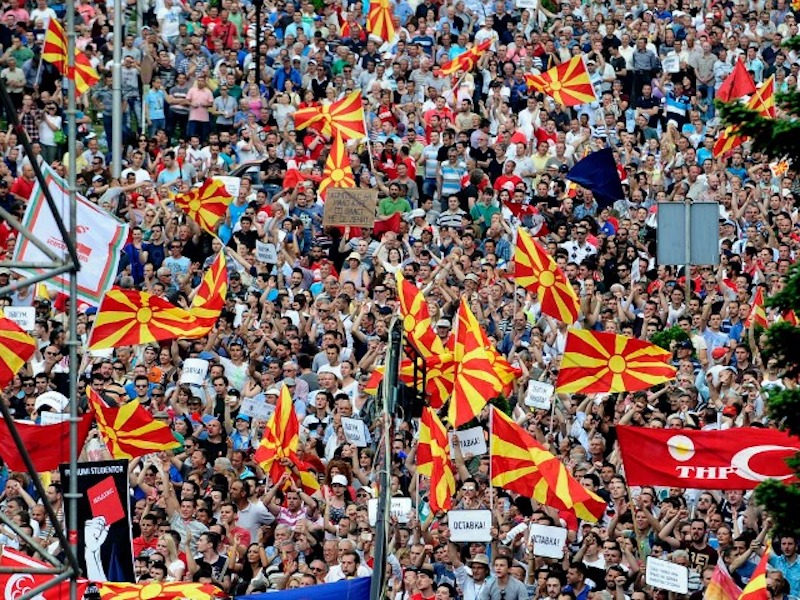
It was in 2015 when I realised that the days of the authoritarian regime of North Macedonia, nicknamed “the family”, led by former PM Nikola Gruevski, were numbered.
Their wrongdoings were ironically uncovered by leaked wiretaps recorded illegally by the secret police.
It was strange to hear top officials rigging elections, controlling the media and judiciary, discussing bribes and rejoicing in taking revenge against a former political ally after demolishing his building.
Massive protests followed under the slogan “No Justice – No Peace”, and by mid-2017 Gruevski’s family crumbled.
Could this be it? I wondered. Could this be the turning point for my country?
But soon, sweet justice turned sour when the new Social Democratic government first broke its promise to root out corrupt judges, insisting it would do more harm than good. In 2018, they endorsed an amnesty law for Gruevski’s supporters who stormed the parliament the previous year, saying it was for the sake of reconciliation.
In 2021, Saso Mijalkov, the former head of the secret police, was jailed for 12 years for masterminding the illegal wiretapping. A little glimmer of hope, one would say. But a higher court scrapped this verdict and ordered a retrial, which now has an unrealistic deadline of next year.
As I write these lines, Law students from Skopje are again protesting in front of the government. The slogan “No Justice – No Peace” is the same.
The reason? A recent government decision made a change in the criminal law that reduces sentences for misuse in office and criminal enterprise. This would also make many of the ongoing cases expire.
Is the current “family” making a deal with the old “family” for when it loses power by offering a quiet amnesty for wrongdoers? Quite possible, but this is irrelevant.
Our fight against the real “family”, deeply embedded in institutions that have no political color and are driven exclusively by self-interest, has failed miserably.
Thanks for reading the 44th edition of European Focus,
Cases of favouritism and nepotism are often those that most outrage voters.
In 2017, the conservative French presidential candidate François Fillon was supposed to win the election hands down, but he did not even qualify for the second round after a newspaper revealed that he had provided his wife with a fictitious job as a parliamentary attaché. I hope this result can be repeated elsewhere.See you next Wednesday!
Nelly Didelot




